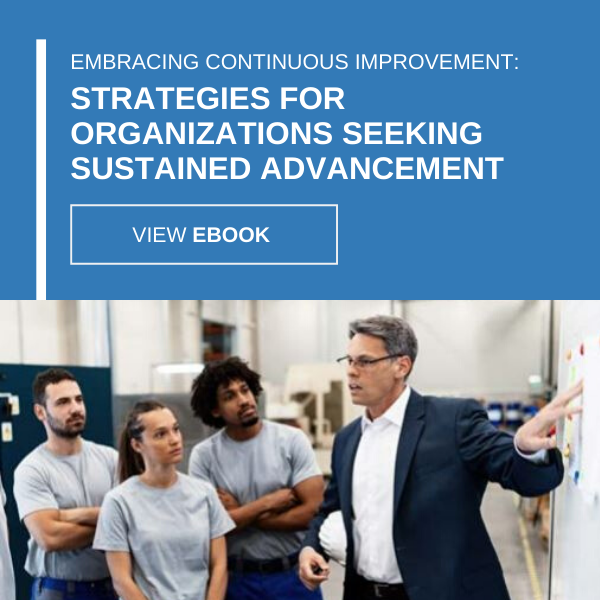
How a Little Goes a Long Way in Operations Management
A little goes a long way. It’s an old adage, but one we’ve seen play out, day after day, during our 55-plus years in the consulting business. It’s the notion that what may seem like small changes actually produce big results. At USC Consulting Group, one of our specialties is the “detective work” we do to find hidden opportunities for greater efficiency. Acting on those opportunities can create great change.
Here are some ways a “little” can go a long way for our clients.
Outage management
Most industries that have 24/7 operations — manufacturing, mining & metals, and others — need to do planned outages, or work stoppages, for regular maintenance. It’s a practice we enthusiastically recommend. Planned outages prevent unplanned crises when a machine breaks down unexpectedly. Managing planned outages correctly is vital, because any time the operation is shut down for maintenance, that time is money.
Intricate detail and planning go into planned outages. That was the case with one of our recent clients in the mining industry. They approached USC to assist in planning and executing an upcoming plant-wide outage. Because of cost and schedule overruns year in and year out, the plant was given an ultimatum from its parent company — make the upcoming outage successful or close the plant down.
Through careful planning and execution, we shaved one day off of their planned outage. You might be thinking, just one day? That “small” improvement saved the company upwards of $1 million. The outage was successful, and the plant stayed open.
Food processing
The commercial food industry has a tough nut to crack (pardon the pun) when it comes to processing and bagging their product to send to grocery stores or other end-clients that sell to consumers. Getting the most of their raw materials is all about improving yield, but it’s not easy to achieve the right balance. Let’s take the beef industry for an example. In processing beef into burger, there is a loss of moisture. That’s why when you start off with a pound of beef you don’t get a pound of burger. But, as a consumer, when you’re buying what is labeled a pound of burger, you can expect a pound — by law. To achieve that, the industry compensates for the loss of moisture and adds more ground beef into each unit. Better to pack a little too much than too little, right? It’s what the industry calls “the giveaway.” It’s essentially overpacking.
Just a little more? How big a problem is this, really? If a company is processing, say, 30,000 pounds of ground beef into burger every day, adding a smidge more into each package can be a very big problem indeed. One recent client of USC came to us when they realized they were giving away over 1.5 million pounds of beef yearly.
With process improvements, equipment fixes and increased speed and throughput, we were able to help our client strike the right balance, decreasing that overpack from 2% to 1%. Just a 1% savings? That’s a pretty small number on the face of it… until you see it resulted in a savings of $84,000 per month. That’s huge.
Change management
Not every “small” change can produce hard numbers like the examples above, but we see the benefits time and time again when we’re helping clients with change management.
We’ve learned that we can effect all the change we can muster — make the line more efficient, increase throughput, get the operation lean and mean, whatever else is needed — but none of it will stick without managing the change correctly. This part of the job isn’t about numbers, planning or complex methods. It’s about people.
Whatever the change you’re making, it’s going to involve people behaving and working in a different way. So at its core, effective change management requires helping people transform their behavior. As we all know, people don’t necessarily love that, especially if they’ve been getting the job done one way for the duration. Research shows 62% of people don’t like leaving their comfort zone.
We find that small changes really go a long way here. It’s about the CEO taking some time to walk the shop floor and talk with frontline workers about the changes that are coming down the pike. It’s about us involving those workers in the process of change from the get-go, asking for their ideas for improvements, their thoughts about what the problems are that need solving. That way, the change that we’re implementing won’t be happening to them. They will be a part of it, champion it, and make that change stick every day on the line.
One other bonus to this tactic? It creates employee engagement and loyalty. Just 36% of U.S. employees are engaged at work, and 74% are actively looking for new jobs, according to a Gallup survey. 94% of employees say they’d stay at a company longer if it invested in their career development, LinkedIn reports. With manufacturing looking at 1 million unfulfilled jobs and the cost of replacing an employee as much as twice their annual salary, those small changes can mean big numbers on your balance sheets.
This is one part of our process that doesn’t take advanced degrees, engineers or Lean Six Sigma black belts to achieve. It just takes a little time and some people skills.
Get in touch today if you’d like to talk about how USC can help your company become more efficient and effective. One small conversation can go a long way to improving your operations.







